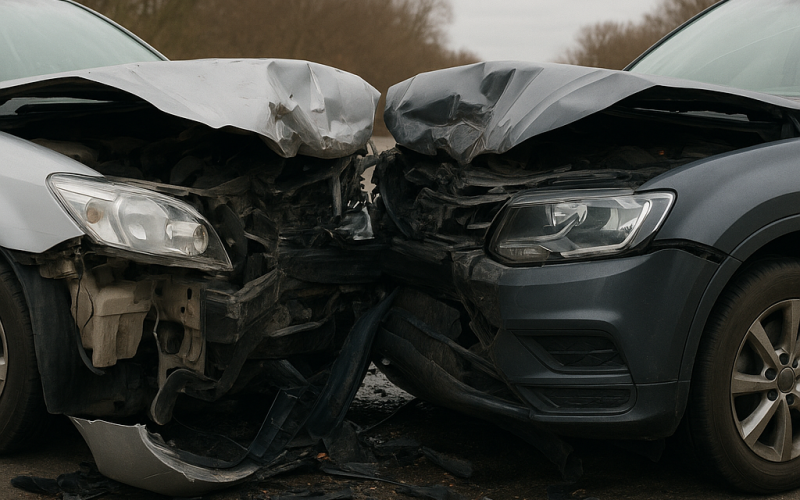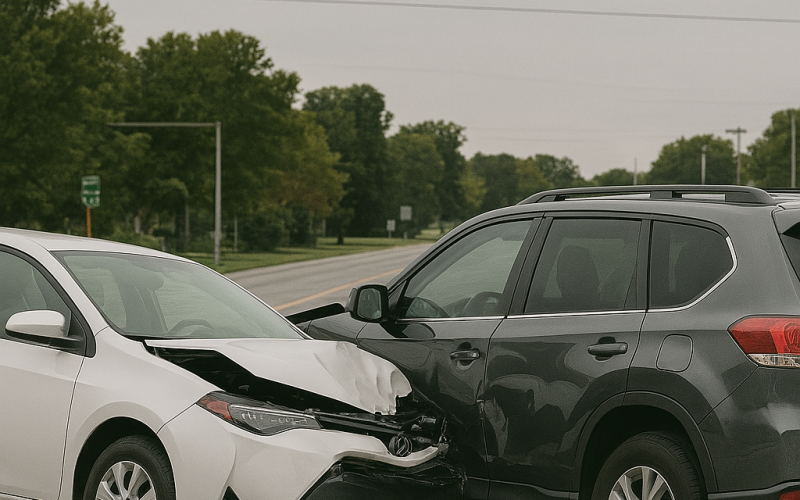How to Determine Employee Compensation



When someone is injured at work, unfortunately, benefits are not automatic. Even though workers’ compensation insurance in South Carolina requires that job injuries and illnesses related to working conditions are covered, it is sometimes not easy to collect what you deserve. Although benefits are defined by the law, insurance companies can make filing a claim difficult and time-consuming. You do not need extra worries or aggravation if you have a work-related injury. For help with a workers’ compensation issue, call HawkLaw for sound legal advice from our workers’ compensation lawyers. HawkLaw’s steadfast lawyers will fight for you to receive a fair settlement offer.
In South Carolina, an injured worker is entitled to reimbursement for the cost of medical treatment, temporary total compensation for lost time, and permanent disability benefits as part of a workers’ compensation claim. It makes no difference under the law if the injury was an accident or the result of negligence. There are some grey areas, though, in the South Carolina workers’ compensation laws. If a claim is questioned, or initially disallowed, it is wise to seek legal advice.
What Does South Carolina Workers’ Compensation Cover?
Work injuries qualify employees to receive three kinds of benefits. They include medical benefits, lost wages, and permanent disability. There are some limitations to coverage, and if you are injured, you make want to secure legal assistance to help determine what benefits are authorized. At HawkLaw, we always fight to win the maximum allowable benefits in each category.
According to the state’s Workers’ Compensation Commission, the employer will typically report a job site injury. However, to protect your rights to receive the benefits that are due, each employee must also file a claim within 90 days of the injury or illness. A claim may be disallowed if that is not done.
Items covered under workers’ comp include:
Accidents or Injuries Caused by an Employee’s Work
In most workers’ compensation cases, when an employee is injured in a job-related accident or contracts an occupational disease, medical care and related costs are payable under workers’ comp.
Occupational Illnesses
These include illnesses or conditions caused by working in an environment that is filled with allergens or harmful substances.
Repetitive Stress Injuries
Over time, some work causes conditions like carpal tunnel syndrome, and these may be covered by South Carolina workers’ comp, according to The Hartford Insurance Company.
Missed Wages
If time away from work is needed to recuperate from a work-related illness or injury, the employee may be entitled to payment for lost wages.
Ongoing Care Costs
Repeated surgeries or long-term occupational therapy are considered authorized expenses and are reimbursable under South Carolina workers’ compensation law.
Funeral Costs
If a death occurs due to a work-related injury, the family is entitled to benefits.
Disability Benefits
Long-term disability benefits are stipulated if an injury or illness makes continued employment impossible.
How Is Workers’ Compensation Calculated in South Carolina?
Benefits that are authorized for any injured employee are determined based on many different factors. In addition to medical treatment, you are entitled to receive at least a portion of your average weekly wages, based on a formula that varies based on the extent of your injuries. If you are under a doctor’s care but can perform light duty, you may be eligible for partial temporary reimbursement for lost wages until you are fully able to return to work. However, if you are offered light duty by an employer, and you refuse, you will lose the temporary reimbursement for lost wages, according to South Carolina Workers’ Compensation Commission guidelines.
How Are Lost Wages Calculated Under South Carolina Workers’ Compensation?
Any payment for lost wages in South Carolina hinges on the advice offered by an attending physician, personal doctor, or other authorized medical authority. Any employee who misses work for more than seven days is authorized to receive temporary compensation. It will begin on the 8th calendar day following the accident or the date you are unable to work. If you cannot work for more than 14 days, you should expect to receive payment from the first day you could not work. These payments are known as temporary lost wages, and they will be discontinued when a doctor says that you may return to work with no restrictions.
If a physician limits activity or restricts an employee’s job duties because of an injury, any benefits paid will be based on the difference between actual pre-injury earnings and post-injury wages.
The different compensation formulas are:
Temporary Total Disability
Temporary total compensation paid out under South Carolina workers’ compensation claims are based on 662/3% of the average weekly wages paid during the four quarters immediately before the injury. The amount can not be more than the maximum average weekly wage determined yearly by the South Carolina Department of Employment and Workforce. If you were working more than one job at the time of the accident, you may include earnings from all jobs to determine the average weekly wage.
There are maximum amounts authorized in some cases, but the minimum is set at $75 a week, and payments can continue until you are released by your doctor to return to work with no restrictions.
Temporary Partial Disability
Temporary partial compensation is calculated as two-thirds of the difference between an employee’s average weekly wage after an injury, the average weekly wage an employee is paid following an injury, and the average weekly wage paid for work before the accident.
In South Carolina, temporary partial disability benefits are common when a doctor places an employee on limited hours of work, or if the employee cannot perform certain tasks because an injury must heal. Such payments will continue until you can return to your pre-injury duties and schedule. The law does not state the maximum number of weeks the benefit can be paid.
Partial Disability
There are also two kinds of permanent disability recognized by the state of South Carolina. Permanent partial disability refers to:
Death Benefits
In addition to the payments authorized for workers who lose income due to a work-related injury, workers’ compensation benefits may be paid to the family of an employee who dies due to a workplace injury.
A spouse, child under 18, or the parents or caregivers of an adult child dependent wholly on their support are entitled to benefits if death occurs following a workplace accident. Such benefits include medical expenses.
Authorized death benefits are two-thirds of the deceased employee’s average weekly wage, and can extend for up to 500 weeks. In South Carolina, the beneficiaries can also receive up to $12,000 for funeral and burial expenses.
The death benefits you can receive are two-thirds of the deceased employee’s average weekly wage. This amount can be paid to you for up to 500 weeks. You can also receive up to $12,000 for burial and funeral costs in South Carolina.
How Long Will My Workers’Compensation Benefits Cover Lost Wages?
Injured workers can typically expect to receive benefits until they are fully released by their doctor to return to work with no restrictions. That is officially known as MMI or maximum medical improvement.
The basic time frame you should remember is 150 days following notification of any accident. If you are back at work within 150 days, you should receive a Form 15, notifying you that your payments have been stopped and the reason why. You can request a hearing if you disagree.
If more than 150 days have passed since notification of the accident, you will be asked to sign Form 17 after you have been back at work for 15 days. Again, if you disagree, request a hearing.
Because the compensation rate varies, and the requirements for claims can be confusing, The South Carolina Workers’ Commission Commission has an online FAQ page that is a valuable resource.
Payment schedules and limitations for permanent disabilities are different. They are based either on your specific injuries or loss of earning capacity. Continuing benefits are paid at the same rate as temporary benefits, and are typically limited to 500 weeks.
Benefits can continue for life for employees who are considered permanently and totally disabled, and who are paraplegic, quadriplegic, or have physical brain injuries. In cases of severe injury or long-term disability, it can be beneficial to consult with a knowledgeable attorney to review your coverage and your rights under South Carolina workers’ compensation law.
How Can I Increase My Workers’ Compensation Benefits in South Carolina?
If you were denied benefits following a workplace injury in South Carolina, or if you suspect your offer of compensation is unfair, do not hesitate to schedule a consultation with a workers’ comp law firm. In most cases, insurance coverage for job site accidents and injuries is not a choice. Instead, it is a requirement, and all employees are entitled to state-authorized benefits and payments.
An experienced law firm with a record of success dealing with the South Carolina workers’ compensation commission can advise you about the best ways to initially file a claim, monitor the action taken, file a protest, or schedule a hearing with the South Carolina Workers’ Compensation Commission.
Unless your injury is minimal and your case is straightforward, there are important reasons to seek the advice of an injury lawyer. First, South Carolina workers’ compensation law is complex, and you will no doubt have many questions. A workers’ comp claim of personal injury is sometimes subject to interpretation. Insurance companies are for-profit companies, and they try to pay out as little in benefits as possible.
Three steps any injured worker should consider:
- Schedule a consultation with a workers’ compensation attorney at the time you file a claim. Ask questions about the procedure and become familiar with your rights. If your claim is ignored, or your requests for information go unanswered, you need an attorney.
- An experienced law firm with a record of success dealing with the South Carolina workers’ compensation commission can advise you about the best ways to initially file a claim, monitor all action that pertains to a claim, file a protest, and schedule a hearing with the South Carolina Workers’ Compensation Commission.
- If you were denied benefits or suspect that a settlement offer is too low or unfair, a workers’ compensation attorney will advise you about further actions to take. Your attorney can save you time, help you get maximum benefits, support your request to change doctors if warranted, act on your behalf to process your workers’ compensation claim, and serve as your advocate until you return to work or your claim is settled to your satisfaction.
At HawkLaw, We Know How Much Your Claim Is Worth
Each injury is unique. It is not uncommon to discover that the offer you received is not enough to cover the medical expenses for your injuries. That is where HawkLaw can assist you.
- You do not have to accept an initial offer for settlement. Statistics show that people who negotiate their South Carolina workers’ compensation settlement offers will receive, on average, more than $30,000 more. That is certainly something to consider.
- HawkLaw’s experienced lawyers will help you negotiate with your employer and their insurance company. If you have been injured in a job site accident, think about getting help.
Legal advice is not difficult to obtain. At HawkLaw, you can request a free consultation* today via phone (888-HAWKLAW) or our website. Our personal injury lawyers are ready to assist you and help win your case.
John D. Hawkins
John Hawkins is the Founder and CEO of HawkLaw He has been licensed to practice law in South Carolina since his graduation with honors in 1994 from the University of South Carolina School of Law, where he was on the Law Review and Order of Wig and Robe.
-
$3,000,000*SettlementTrucking Accident
-
$1,005,000*SettlementCar Accident
-
$575,000*SettlementPersonal Injury
"*" indicates required fields









